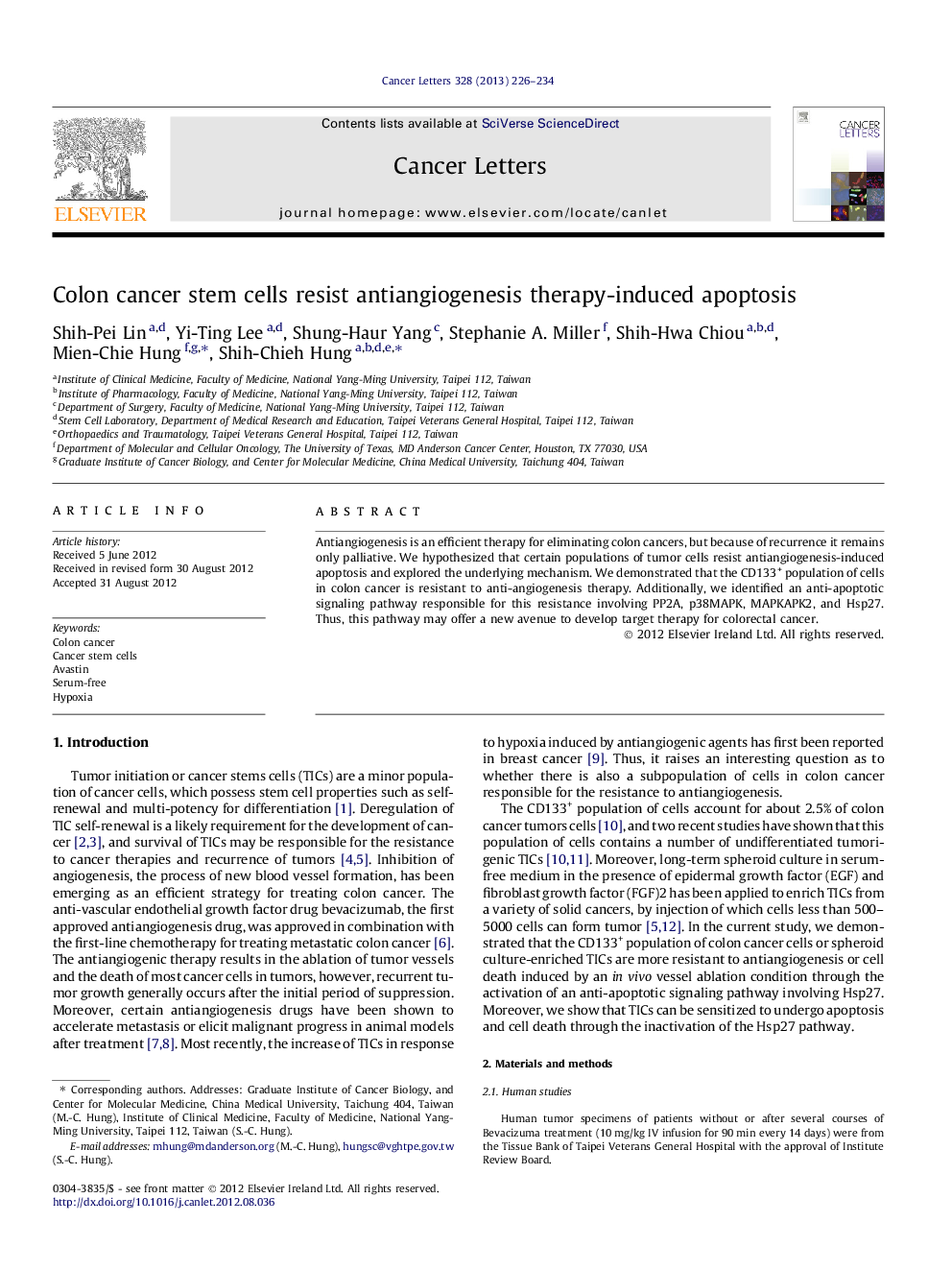| Article ID | Journal | Published Year | Pages | File Type |
|---|---|---|---|---|
| 2113136 | Cancer Letters | 2013 | 9 Pages |
Antiangiogenesis is an efficient therapy for eliminating colon cancers, but because of recurrence it remains only palliative. We hypothesized that certain populations of tumor cells resist antiangiogenesis-induced apoptosis and explored the underlying mechanism. We demonstrated that the CD133+ population of cells in colon cancer is resistant to anti-angiogenesis therapy. Additionally, we identified an anti-apoptotic signaling pathway responsible for this resistance involving PP2A, p38MAPK, MAPKAPK2, and Hsp27. Thus, this pathway may offer a new avenue to develop target therapy for colorectal cancer.
► CD133+ and spheroid culture-enriched TICs survive from anti-angiogenesis therapy. ► CD133+ and spheroid culture-enriched TICs survive from in vivo vessel ablation. ► Inhibition of Hsp27 signaling sensitizes TICs to vessel ablation-induced apoptosis. ► Inhibiting Hsp27 reduces tumor size when combining with anti-angiogenesis therapy. ► TICs activate p38MAPK-MAPKAPK2-Hsp27 via suppression of PP2A to inhibit apoptosis.
